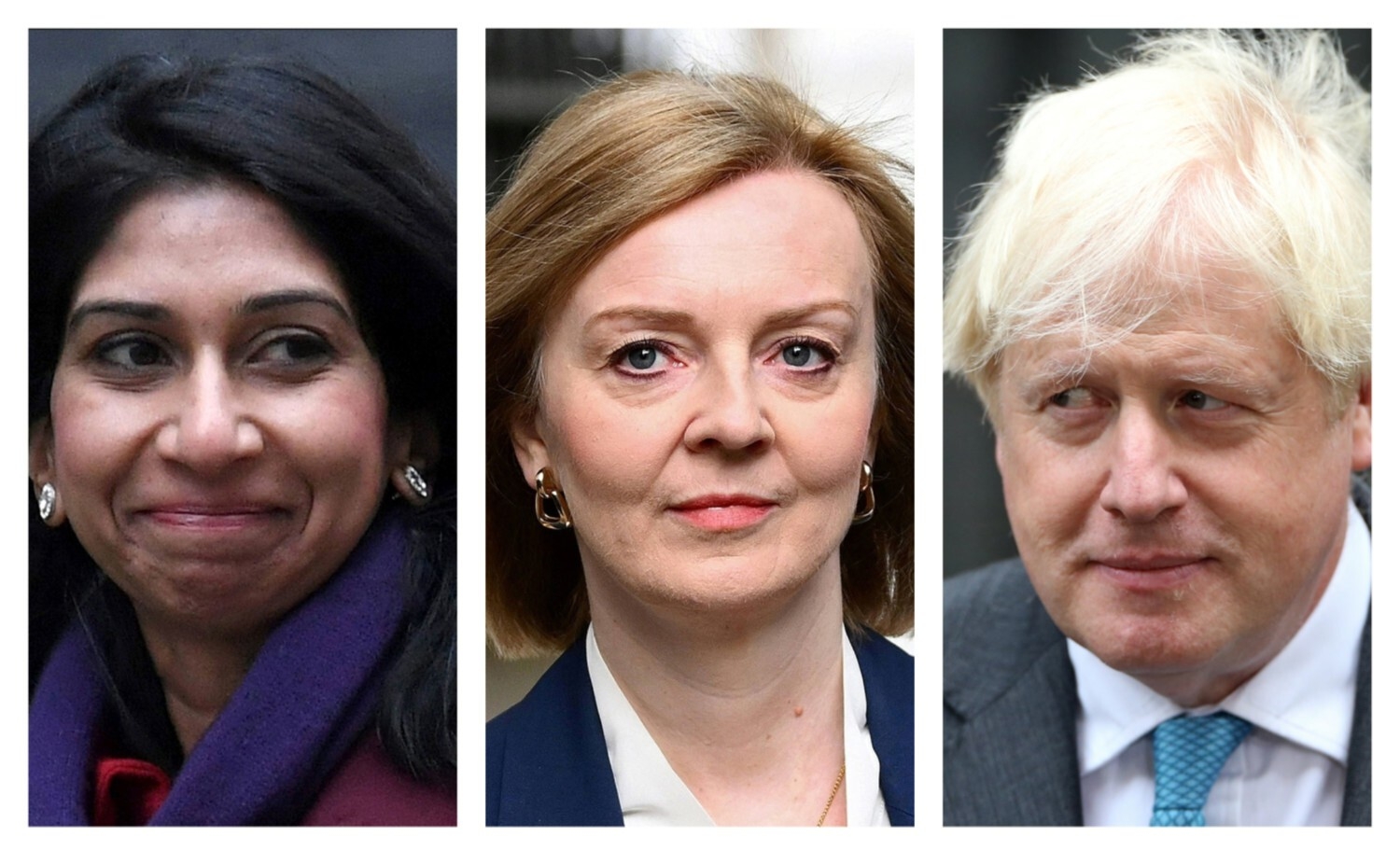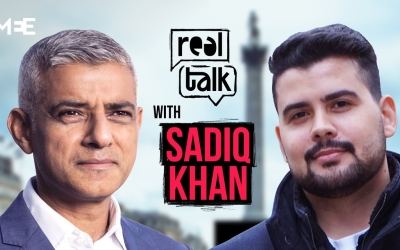Islamophobia and the Tories: Three scandals that shook the party

The UK's governing Conservative Party is beset by new accusations of Islamophobia over comments made by Lee Anderson, the party's former deputy chair and a sitting MP, in which he suggested that London Mayor Sadiq Khan had "given the capital away" to Islamists.
The Conservatives have suspended Anderson after he refused to apologise, but British Prime Minister Rishi Sunak faced criticism on Monday for failing to condemn Anderson's remarks as Islamophobic.
Anderson's suspension follows comments made by other prominent MPs on the Conservative right - including a former prime minister - which have also drawn condemnation and complaints of Islamophobia.
Last week Liz Truss, Sunak's predecessor as party leader, faced criticism for speaking at the controversial Conservative Political Action Conference in Washington alongside former Donald Trump adviser Steve Bannon where she warned that "a radical Islamic party" could win this week's Rochdale by-election.
Then Suella Braverman, the former home secretary, opined that Islamists are in control of the UK, with sharia law and "the Islamist mob" taking over communities.
With the Conservatives once again under scrutiny for what the Muslim Council of Britain has described as "structural Islamophobia", MEE looks back at three defining moments that have shaped the party's relationship with British-Muslim communities over the past decade.
Suliman Gani
Sadiq Khan's first run for mayor of London in 2016 was a lightning rod for Islamophobic comments from Conservative Party members.
That April, Conservative mayoral hopeful Zac Goldsmith accused Khan of sharing a platform with a London imam, Suliman Gani, whom he referred to as "one of the most repellent figures in this country".
Khan, Goldsmith said, was "giving platform, oxygen and cover" to extremists.
It turned out Gani, an imam based in south London, had previously campaigned for the Conservative Party and had even posed for a photo with Goldsmith, which had showed both men smiling.
While no evidence emerged to back up Goldsmith's claims that Gani was an extremist, the BBC reported that Gani supported the Islamic State militant group.
Then Prime Minister David Cameron repeated the claim during Prime Minister's Questions in parliament, meaning his comments were protected by privilege and he could not be sued.
Michael Fallon, then defence secretary, further repeated the claim in an interview with the BBC, which led to Gani threatening legal action.
Days later, Fallon apologised, with a spokesman saying the politician had been quoting the BBC report and hadn't realised the BBC had issued a clarification and apology.
Twenty-one days after his comments in parliament, Cameron, too, apologised, saying he was sorry for "any misunderstanding", following his remarks.
'Letter boxes'
Two years later, Boris Johnson, then a Conservative MP between jobs as foreign secretary and prime minister, sparked controversy when he described the niqab, a face-covering veil worn by Muslim women, as "letter boxes" and compared those who wore them to bank robbers.
If a constituent came to his office wearing a niqab, Johnson wrote in the Telegraph, he would "feel fully entitled" to ask her to remove it so he "could talk to her properly".
"In Britain today, there is only a tiny, tiny minority of women who wear these odd bits of headgear. One day, I am sure, they will go," he wrote.
Johnson's piece argued against the niqab ban on the basis that it might "risk a general crackdown on any public symbols of religious affiliation".
But critics said his descriptions of the garment were "oppressive and ridiculous" and gave licence to bigotry, with a UK-based anti-Muslim abuse monitor reporting a 375 percent spike in Islamophobic incidents in the week following the publication of the column.
Of the 38 incidents reported to the police, Tell Mama said 22 involved women wearing the face veil.
Several months later, he told LBC that he would repeat his comments and that he "would be appalled" if he had brought about anti-Muslim rhetoric with his writing.
Pressed on ITV's This Morning in December 2019, by which point Johnson was prime minister, he finally made an apology of sorts.
“I’ve already said sorry for any offence I have caused and I’ll say it again, but let me be very clear that I don’t set out to cause offence in what I’ve written," he said.
Nusrat Ghani
In January 2022, Conservative MP Nusrat Ghani told the Sunday Times that a party whip told her that she had been sacked from her role as transport minister because her Muslim faith "was making colleagues uncomfortable".
Ghani said the whip told her that her "'Muslimness' was raised as an issue” at a meeting in Downing Street and that her “Muslim women minister status was making colleagues feel uncomfortable”.
“It was like being punched in the stomach,” she said. “I felt humiliated and powerless.”
A spokesperson for Boris Johnson, then prime minister, said he had met with Ghani and invited her to file a formal complaint, but said she had not done so.
Ghani said that she had been warned that if she raised the issue, she would be ostracised by colleagues and her career would be destroyed. Johnson, she said on Twitter, told her he "could not get involved".
Ghani's story drew further pressure from those calling for the Equalities and Human Rights Commission (EHRC) to finally investigate Islamophobia inside the Conservative Party.
The EHRC - which investigated antisemitism in the Labour Party - dropped plans for such a probe after the Tories launched their own investigation in May 2020, conducted by professor Swaran Singh of the University of Warwick.
The Singh investigation, published in May 2021, found anti-Muslim sentiment "remains a problem in the party" but said it was not an institutionalised one.
British-Muslim political leaders, including some within Conservative ranks, branded the report a whitewash.
Middle East Eye propose une couverture et une analyse indépendantes et incomparables du Moyen-Orient, de l’Afrique du Nord et d’autres régions du monde. Pour en savoir plus sur la reprise de ce contenu et les frais qui s’appliquent, veuillez remplir ce formulaire [en anglais]. Pour en savoir plus sur MEE, cliquez ici [en anglais].


